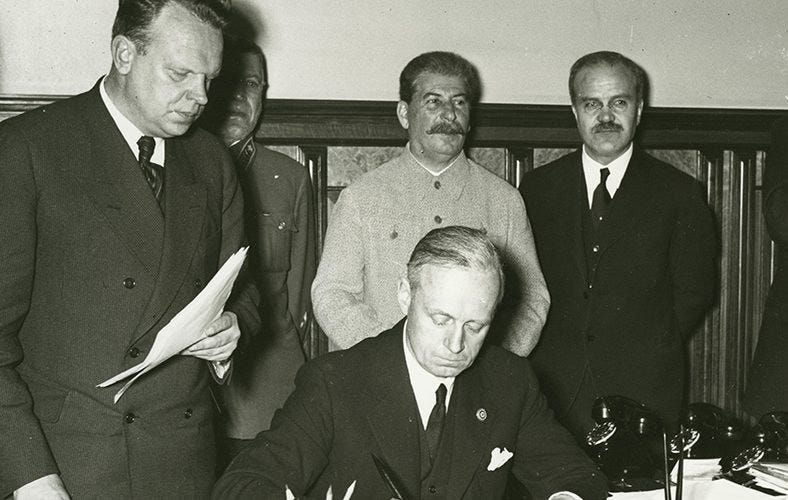How Stalin Beat His 'Allies' And Won The War
Reading 'Stalin's War: A New History of World War II' by Sean McMeekin
No single book has undermined the reputation of Franklin Delano Roosevelt and Winston Churchill, as well as the outcome of the 20th century’s pivotal conflict, more than Stalin’s War: A New History of World War II. Rejecting “the enduring Hitlerian hypermnesia in the historical literature on World War II and the concomitant neglect of the enormous Soviet part in the drama”, author Sean McMeekin was assailed by historians for upending their professional consensus, threatening the hallowed myth of the Second World War as a victory for freedom rather than a victory by the forces of communism.
In fact McMeekin has simply told the story of the war as Stalin understood it. He was at war against the capitalist world, including Germany, and merely divided that world against itself to conquer it. The infamous Molotov-Robbentrop agreement that partitioned Poland was aimed at getting France and Britain to fight Germany. The infamous Soviet-Japanese Neutrality Pact was aimed at encouraging Japan to fight the Americans. Seen from Stalin’s perspective, the war was a brutal expansion of Soviet hegemony, funded and powered by capitalism, both through subterfuge and open browbeating, by getting all his enemies to fight each other, each becoming an ‘ally’ or neutral until he was ready to turn on them again.
Reading this book over a weekend of news about Ukraine ‘peace talks’, I could not help but think of Steve Witkoff and Jared Kushner, like Winston Churchill and FDR, surrendering land, resources, and teeming millions to Soviet communism. Churchill sold out the Chetniks and their leader, Dragoljub Mihailović, to please Stalin; Roosevelt sold out Chiang Kai-shek to please Stalin. Because his allies went out of their way to help him against the Germans, Stalin could bully and threaten and invade at will. Yugoslavia and China became communist states thanks to Soviet armies supplied, fed, and equipped by the United States, and then the surfeit of arms in the far east. “By supporting Stalin unconditionally after Hitler’s attack, and demanding nothing in return, Churchill and Roosevelt had stacked the decks against themselves.”



